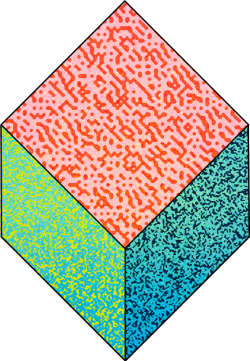Capitalism and free markets have infamously been married to selfishness and greediness. Some think if you support wealth creation you are automatically an immoral human being. Perhaps many people see capitalism and free markets through a negative moral lens because of Adam Smith’s fascination with self-interest driving production in the Wealth of Nations. The idea businesses have to be motivated only by self-interest is limiting born out of a negative assumption of human needs. If we as a collective society change our perspective from “profit is the end” to “the means to profit is the means to the end,” as Raj Sisodia the co-founder of the Conscious Capitalism movement puts it, we will begin to see capitalism and free markets in a new light. Sisodia argues that people form a negative relationship with capitalism and free markets when they see the two systems as money-oriented rather than people-oriented. The truth is every business has to be people-oriented for it to be sustainable and profitable. Businesses built on strong social capital with a good social cause gain social trust that allows them to use profit to build healthy, sustainable communities.
A beautiful example of this is the social business pink maharani. Pink maharani connects artisans from Kashmir, a conflict-prone region in India, to a wealthy market for luxury fashion in Geneva, Switzerland. The innovative business idea not only preserves the art of traditional handwoven cashmere shawls, but also provides a valuable market for the generational art to be sold for a price worth its true value. Through providing stable jobs to artisans living in an unstable political and economic climate, pink maharani is economically empowering men and women to build their communities and weave a better future for their children. Moreover, with every shawl that pink maharani sells, it uses a portion of its profits to provide menstrual hygiene products to girls in India so they don’t miss school, art and music therapy workshops for girls healing from trauma, and school backpacks embedded with solar panels to children living in remote regions of India with no or limited electricity so that they have light in the evening to do their homework. Pink maharani stood the test of time during COVID lockdowns when consumers reached out to support the business and it survived by swiftly building an online presence and keeping sales going. All of this was possible because of pink maharani’s people-oriented business model that built the social trust for the business to innovate and live through tough economic times. I had the honor to meet the co-founder Narmada Ramakrishna in Geneva whose social entrepreneurial spirit manifested pink maharani by using profit as the means to the end.
Free markets creatively bring together people of various socio-economic situations and different human needs so that they can exchange valuable goods and services and facilitate sustainable development. Pink maharani is a prime example of how people-oriented free markets can advance international development, create jobs in war-zones, protect traditional art practices, make fashion an environmentally sustainable industry, help children in remote areas succeed in school, and provide social services to girls in underdeveloped countries. The impact of free markets depends all on how society as a collective views and uses profits. A very valuable piece of advice that I took from one of Raj Sisodia’s interviews is that he tells fresh graduates who want to make social impact to build a for-profit, not a non-profit, because profit can be used to bring about the social change you want. At the end of the day, if people value people, free markets will value people.










